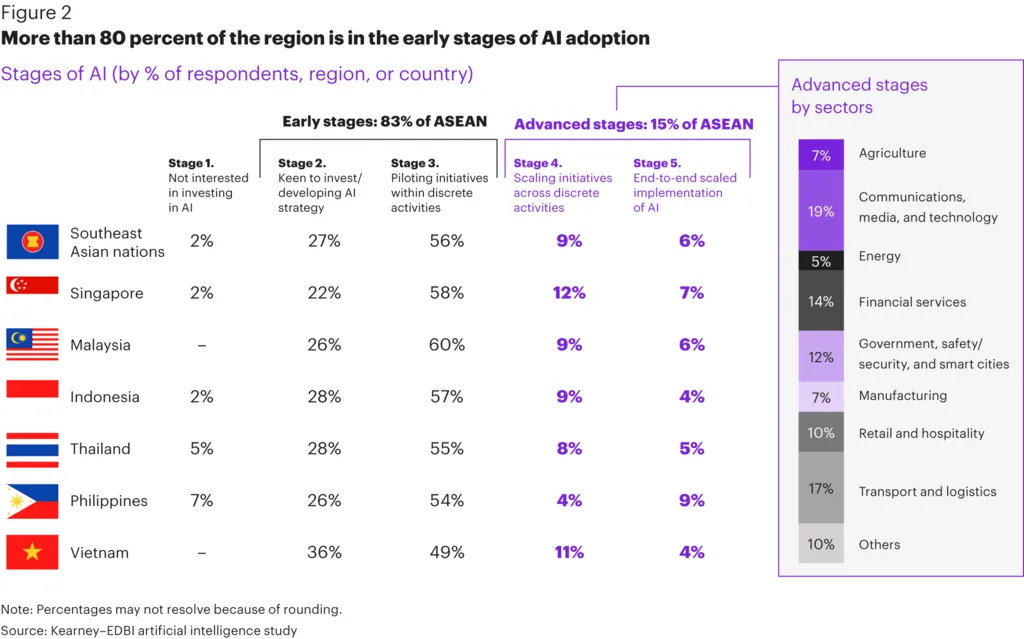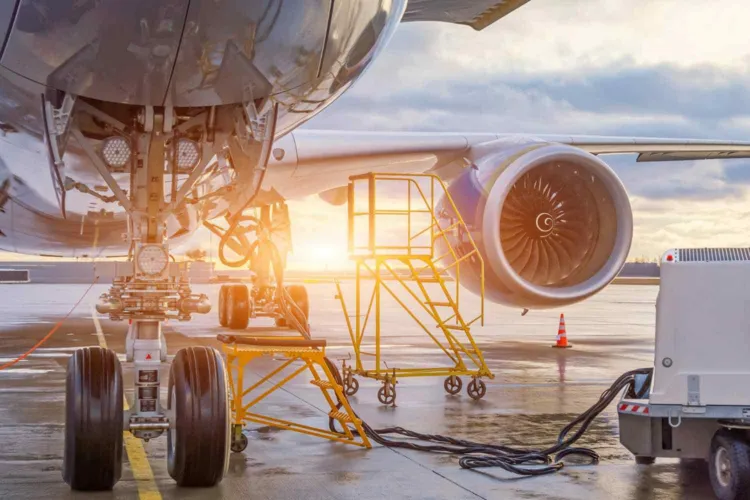Southeast Asia AI adoption is accelerating at a dramatic pace. From a market size of just USD 1.7 billion in 2022, AI in the region is expected to grow more than 40% annually, reaching USD 25 billion by 2030. As digital economies boom, artificial intelligence is no longer experimental, but essential.
Back in 2020, the region saw the early stage of AI adoption.

Now, more than 62% of businesses in Southeast Asia are already using AI in core operations. Whether in retail, logistics, or governance, AI tools are transforming how organizations make decisions, serve customers, and plan for the future.
Personalized Retail and Predictive Logistics
Retailers in Southeast Asia have embraced AI to enhance customer experiences. Platforms using AI-powered recommendation engines have seen 13% higher conversion rates, while personalized marketing has boosted engagement by 20-30% and online sales by up to 15% year-on-year.
In logistics, predictive analytics powered by AI is streamlining supply chains. Companies in Vietnam and Indonesia report up to 20% cost savings, while across the region, delivery times have dropped by 25%. This is especially crucial as Southeast Asia remains one of the world’s fastest-growing e-commerce markets.
Read Also: The Quiet Revolution: Southeast Asia AI Trade Flow Impact
Smart Governance and AI Ethics in Action
Singapore is leading smart governance, with its Model AI Governance Framework now adopted by over 80 private companies. The framework promotes transparency, fairness, and explainability. As AI scales, trust is essential—yet only 35% of global consumers currently trust AI, according to research cited by Singapore’s IMDA.
Governments across the region are investing not just in technology, but also in responsible deployment. Malaysia and Singapore are testing AI-powered city systems that improve public resource use by 10–15%, showing the promise of ethical, data-driven urban management.
Southeast Asia AI Adoption: Rising Talent and Local Innovation
ASEAN is also building human capital to match tech adoption. The region has pledged to upskill 20 million people in digital and AI skills by 2030. Countries like Singapore and Malaysia are already seeing results, with a 250% increase in AI proficiency among their workforce since 2020.
In Vietnam, more than 60 AI startups are now active, focusing on natural language processing, computer vision, and education tech. The country even ranks in the global top 30 for AI research output.
Read Also: Smart Care at Home: Scaling Singapore AI Home Healthcare for Aging Populations
Investment Boom and Startup Momentum
Venture capital in Southeast Asia’s AI sector has surged from USD 300 million in 2020 to over USD 1.3 billion in 2024. Singapore and Indonesia dominate the funding landscape, but other ASEAN markets are quickly catching up through government-backed innovation zones and regulatory sandboxes.
This capital injection is turning AI prototypes into scalable solutions in health, finance, logistics, and public services—transforming both work and daily life.
Harmonized Growth: Southeast Asia AI Adoption Strategy
The ASEAN Guide on AI Governance and Ethics (2024) now serves as a unifying playbook for responsible AI deployment. With infrastructure upgrades, policy alignment, and growing consumer demand, the Southeast Asia AI adoption is rapid, coordinated, and future-ready. The region’s unique combination of tech enthusiasm, market potential, and regulatory clarity makes it a hotbed for global AI firms seeking new opportunities.







